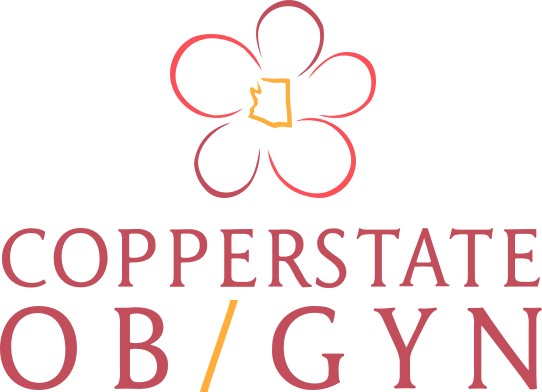When you think of a pregnancy timeline, you might think simply “nine months”. But actually, pregnancy development is tracked a little differently than that. Pregnancy and fetal development is tracked in terms of “weeks” and the weeks are split up into pregnancy trimesters. That’s why when you ask a pregnant woman how far along she is, she tends to respond in the number of weeks instead of months.
Each week, or set of weeks, comes with its own set of symptoms and milestones. Here’s what you can expect during each pregnancy trimester.
Pregnancy Trimesters: What to Expect
1st Trimester (Week 1 – Week 12)
The first trimester is generally the most talked about trimester in pregnancy. This is because it’s the most crucial time for fetal development and also because it’s generally when morning sickness is most prominent.
During the first few weeks of pregnancy, the egg and sperm combine to form a zygote, which will implant in the uterine wall (conception). Then the zygote becomes an embryo as the cells divide and grow. All of the major organs and structures begin to form right away. You can even hear a baby’s heartbeat on the doppler as early as 8 weeks!
While the first of the pregnancy trimesters is crucial for baby, it can also be the toughest on mom. So many changes are happening within the body and new hormones are surging which can cause morning sickness – better known as “all day sickness” in some cases.
Here’s a quick summary of what many women can expect during the first trimester:
-
- Nausea and vomiting
- Food cravings and aversions
- A heightened sense of smell
- Mood swings
- Fatigue
- Tender or sore breasts
2nd Trimester (Week 13 – Week 27)
The second trimester is often known as the “honeymoon” of pregnancy. This is because many of the nasty first trimester symptoms are subsiding, but you’re not so big yet as to be uncomfortable or experience other third trimester discomforts.
During the second trimester, the fetus will go through a lot of changes and grow from approximately 4–5 inches long to around 12 inches long. The fetus will also go from weighing about 3 ounces to weighing 1 pound (lb) or more. Not to mention, they’ll also be forming important parts of the body such as their skeleton, muscle tissue, skin, and footprints and fingerprints.
While you may feel your energy returning and your appetite starting to increase, you may experience some other common second trimester symptoms, such as:
-
- Round ligament pains
- Changes in your nipples
- Stretch marks
- Feeling the baby moving for the first time!
3rd Trimester (Week 28 – Week 40)
The last of the pregnancy trimesters lasts from week 28 until delivery which usually occurs around week 40. Pregnant women may also begin to feel uncomfortable during this trimester as the belly starts to grow. Most women start to feel Braxton–Hicks contractions getting stronger, and they may have back pain from carrying a heavy belly.
During this trimester, a developing baby will grow from around 12 inches long and 1.5 lbs in weight to about 18–20 inches long and 7–8 lbs in weight. The growing baby will start practicing breathing motions to help prepare for life after birth. Their kicks and rolls become stronger, and a pregnant woman should feel the baby move regularly.
Some common third trimester symptoms you might experience include:
-
- Strong kicks from the baby
- Swollen feet and ankles
- Leaking fluid from your breasts
- Frequent urination
- Fatigue due to trouble sleeping
Each of the pregnancy trimesters comes with its own style of bodily changes and fetal development and can be a little unique for everyone.
Don’t be alarmed if you don’t have all of the same signs and symptoms listed here. Every pregnant woman’s journey is different. The key is to visit your doctor for prenatal care. They will let you know if your pregnancy and baby is developing on track and help you understand what’s happening with your body.
Have you *finally* gotten your BFP? Are you looking for an OB/Gyn? Let us join you on your beautiful pregnancy journey. Book an appointment today!
Resources:
https://kidshealth.org/en/parents/pregnancy-calendar-intro.html

